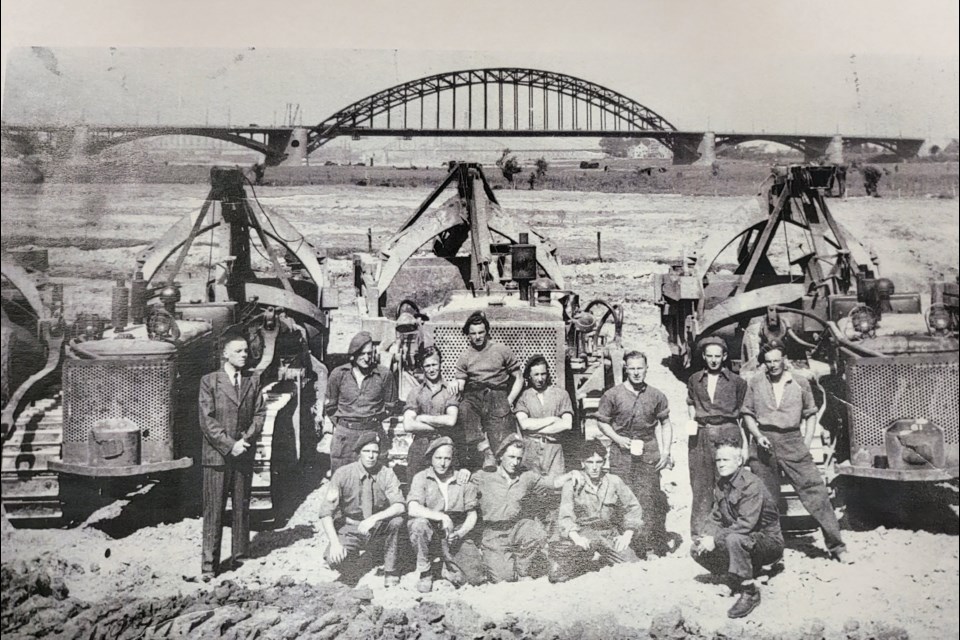VEGA – Andrew Carnegie was a hard-working man in his forties when he enlisted by accident during a partying night with siblings, according to his daughter Dorothy Rauscher, who is now 92 years old.
He was a man of honour and kept his commitment to go to war.
“Dad came home and sat in the big recliner chair and told my mom what he had done,” explained Rauscher, who was ten years old at the time, one of six children.
“Mom threw a cast-iron skillet at his head and hit the chair.”
Carnegie trained in Grand Prairie to learn about soldiering in winter conditions and in Chilliwack for the summer conditions before heading off to war.
Many in the region are like Rauscher and are reflecting on the sacrifices their loved ones made in the line of duty leading up to Remembrance Day.
At war, Carnegie was part of D-Day with Eisenhower and was part of the liberation of France. And it was at that time Carnegie met a familiar face wearing a different uniform.
“At one time, they had captured 20 German soldiers and had them sat down waiting for transport,” Rauscher shared the story her father had told her.
Rauscher’s dad said there was a young German soldier at the end of the line. Carnegie lit a cigarette to have a smoke.
“The young German asked in English, ‘Hey Canada, can I have a smoke,’ to everyone’s surprise that he could speak English.”
Carnegie tossed him a smoke and the soldier sat there and smoked it.
“’Where are you (from) Canada?’ The German soldier asked.”
Carnegie replied, Edmonton.
‘The young guy then said, ‘I think I know you.’”
Carnegie shook his head, thinking it wasn’t possible, Rauscher said.
“The boy replied, ‘You worked on a Caterpillar bulldozer doing road construction and your name is Andy.”
Rauscher said her dad was shocked.
“The young soldier asked dad if he remembered a ten-year-old boy who was on the side of the road wanting a ride on the Caterpillar every day.”
“Dad said that the war was finished for him at that time.”
Rauscher outlined how the boy explained that Hitler had offered free passage back to Germany for any Germans out of the country.
The boy’s mother wanted her father back in Germany to meet his grandsons and the family took advantage of the opportunity to go back.
Once there, both boys were thrown into the war effort, and the boy didn’t know what had happened to his brother, according to Rauscher.
“Dad said that the things in the war that followed were horrible.”
Carnegie returned home from the war on Oct. 5, 1945, at 2 a.m. by train where the family was waiting.
Dorothy remembers with tears in her eyes that his dog, who had had his back broken, crawled to get to her dad when he arrived home.
Carnegie got down on the ground to greet the dog.
He stayed home for the winter after returning from the war.
Eventually, he went back to working in construction where he could find work.
Carnegie died on June 21, 1965, of lung cancer.



